Iran Claims Ex-Police Officer Who Supported Protests Dies Of Cardiac Arrest
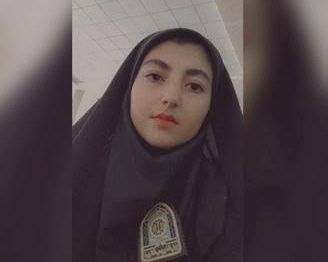
The Iranian regime says a female police officer who died after she defected from the force to express solidarity with protesters has suffered a cardiac arrest.

The Iranian regime says a female police officer who died after she defected from the force to express solidarity with protesters has suffered a cardiac arrest.
Mansoureh Sagvand is the latest such case to mysteriously die in the wake of detention. From the southern city of Abdanan, IRNA state news agency quoted officials from Ilam University of Medical Sciences who claimed her death was caused by cardiac and respiratory arrest.
The brave young woman posted her defection publicly on Instagram. Along with a photo of her in police uniform, she wrote: “I have been working as an honorary member of Khorramabad police force, but I will not have any cooperation with the armed forces and proudly stand with my fellow countrymen.”
The judicial and security authorities of Ilam are yet to provide an explanation about the "suspicious death". The regime also claimed that Mahsa Amini, whose death in morality police custody caused a nationwide uprising since September, died of a heart attack.
The Islamic Republic is disposing of and silencing its critics in ways including shooting them on the streets, executions, torture and psychological pressure.
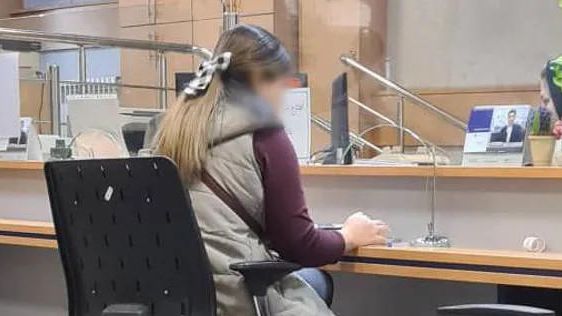
Banks in Iran's northern Golestan province have been urged by local officials not to provide services to women without the mandatory hijab.
Iran International has obtained a letter signed by the secretary of Golestan Province's Bank Coordination Commission addressing the managers of various banks to observe the regulation.
“No excuse is accepted by the operators in giving services (including transfer of money, deposit, and withdrawal by customers, etc.) after this correspondence, and in case of failure, they will be referred to the respected authorities,” read the letter.
Based on the instruction, inspection teams across the province will monitor the implementation of the ruling.
The new restrictions on banks also include dealing with "improper hijab of the employees", in addition to surveilling their family members.
"The activities of the children of employees in cyber space should be addressed and their parents must be given the necessary warnings,” added the letter.
Administrators of the banks should also make arrangements to separate women's workplace from men's and to prohibit the use of female secretaries.
Despite the nationwide uprising against the Islamic Republic after the killing of Mahsa Amini, the Islamic Republic has mounted pressure on women and girls to impose the mandatory hijab in recent months.
However, many Iranian women and girls challenge these efforts by appearing in public places without the compulsory dress code.
The Islamic Republic, founded in 1979, is the only Muslim country other than Taliban ruled Afghanistan with such a strict interpretation of hijab and nationwide coercive measures for its observance, while Islam is the official religion in 26 countries in Asia, sub-Saharan Africa, North Africa, and the Middle East.
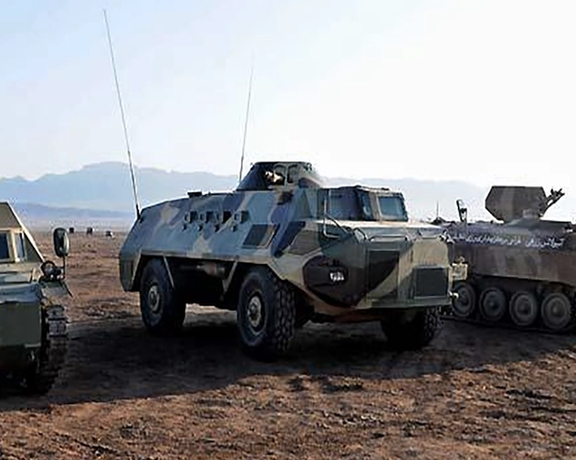
Hengaw Human Rights Organization, a Kurdish rights group, says the Iranian regime is "transferring heavy and semi-heavy weapons" to the Kurdish-majority regions.
"The Islamic Republic has completely militarized Kordestan,” said Hengaw in a tweet on Sunday, warning of what it called the "consequences of the military movements of the Islamic Republic in Kordestan province".
According to unofficial reports, the Islamic Republic's deadline for the authorities of the Kurdistan Region of Iraq to disarm the opposition groups of the Islamic Republic is coming to an end and if the Iranian authorities are not satisfied with the actions, there might be a new round of attacks against these groups based in northern Iraq.
In March, Ali Shamkhani, the then Secretary of Iranian Supreme National Security Council, signed a security agreement with Iraq during his trip to the Arab country to end the activities of the opponents of the Islamic Republic in the Kurdistan Region.
Two months before that, Ali Khamenei, the Supreme Leader, in a meeting with the Iraqi Prime Minister Mohammed Shia Al-Sudani in Tehran said "Unfortunately, this is happening in some areas of Iraq, and the only solution is for the central government of Iraq to exercise its authority in those areas as well".
Since October last year, the IRGC has bombed the positions of Kurds opposing the Islamic Republic in the autonomous region of Iraqi Kurdistan on several occasions.
These attacks came as Tehran accused Kurdish opposition groups of inciting nationwide protests in Iran.
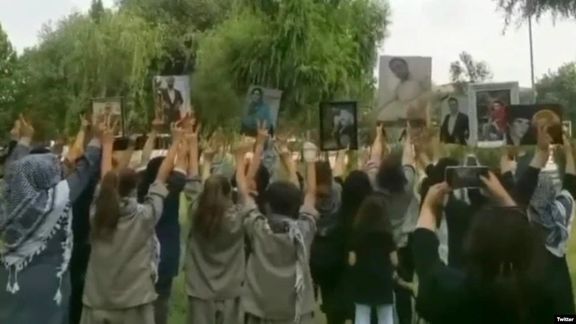
Iranians in the western city of Mahabad held a rally and chanted anti-government slogans to mark the 40th anniversary of the mass execution of 59 youths in the 1`980s.
Videos show security and law enforcement forces surrounded the cemetery of the city an hour before a scheduled ceremony and closed the entrances.
Although the roads to the cemetery were blocked, a group of people gathered near the location holding the pictures of those executed on June 2, 1983. They also carried the photos of those killed during “Woman, Life, Freedom” protests since September 2022.
The protesters chanted slogans like "The Dictator Is Afraid of Us" and "The Martyr Never Dies".
On June 2, 1983, the Iranian regime executed 59 people in the Kurdish-majority city of Mahabad for suspected opposition and based on unknown charges.
Since the establishment of Islamic republic, the regime has mounted massive military, economic, cultural, social and psychological pressures against ethnic Kurds.
Mahsa Amini who died after being arrested by the morality police in September 2022 for "improper hijab" was a 22-year-old Kurdish-Iranian woman. Her death ignited the largest and longest anti-regime nationwide protests in Iran.
The massacre of the prisoner took just a few minutes, while they had no chance to appeal for pardon while some of them were under 18.
The Islamic Republic calls the Kurdish armed groups in the western provinces of Iran, "terrorist groups" or "anti-revolutionary" but these groups say that the goal of their armed campaign is "defending the rights of the Kurds".

Iran's top Sunni cleric Mowlavi Abdolhamid says clerics and religious seminaries must not be funded by the government to remain independent and critical.
“Clerics must be independent and have their own opinions to be able to speak the truth and call the government to enjoin what is good and forbid it from doing what is wrong,” Abdolhamid said in yet another fiery Friday sermon in the southeastern city of Zahedan.
Abdolhamid who has proven to be the unofficial voice of the country’s Sunni population told his congregation that he has on many occasions warned that seminary students and teachers must not receive salaries from the government and seminaries should not be funded by the government.
The Sunni cleric has somewhat become popular even among Shiites for standing up to the regime.
The outspoken cleric stressed that he believes people should be responsible for funding and managing religious institutions. “It’s a great mistake to allocate a budget to seminaries and religious scholars.”
Salaried religious scholars will be dependent on the government and “their mouths will be shut like they have adopted silence [about what the government is doing] now,” he said.
Iran's government annually allocates tens of millions of dollars to religious seminaries and other religious institutions that play the role of its propaganda arm.
In his sermon Abdolhamid also referred to the recent revelations of former director of the notorious Evin prison in Tehran, Hossein Mortazavi-Zanjani, who on April 29 had alleged that President Ebrahim Raisi, then the deputy prosecutor of Tehran, was directly involved in the killing of political prisoners in 1988.
Mortazavi-Zanjani had also said that virgin female prisoners were forcibly married to jailers and raped by them before being executed to stop them from being admitted to heaven on account of their virginity when they died.
“I was shocked by what I heard,” he said, adding that religious scholars (senior clergy) must not remain silent about this matter and the atrocities happening in Iranian prisons now.
The executions were carried out based on a fatwa by Iran's then supreme leader, Ruhollah Khomeini, against the MEK (The People's Mojahedin Organization of Iran) which carried out a wave of bombings in Iran and struck an alliance with Saddam Hussein during the 1980-88 war.
Most victims were linked to the MEK but there were also others with links to leftist and secular groups such as Fadaiyan Khalq Organization (FKO) and the Tudeh Party as well as some Kurdish groups such as Komala and the Kurdish Democratic Party of Iran.
In his sermon, Abdolhamid once again brought up the issue of a referendum to allow the people of Iran to express their views about clerical rule.
“It was our fault that they don’t want Islam and they should not be hit in the head to accept a certain thing now that they are dissatisfied [with the Islamic Republic],” he said, adding that everyone, whether religious or non-religious, should be allowed to live peacefully together and build the country’s future.
“The religious should be allowed to pray and those without religion should be able to do whatever they want. That’s why there should be referendum to find out what the absolute majority of people want and accept,” he said.
Abdolhamid was among the first regime critics who called for a constitutional referendum about 50 days into the wave of protests following the death in custody of 22-year-old Mahsa Amini in September.
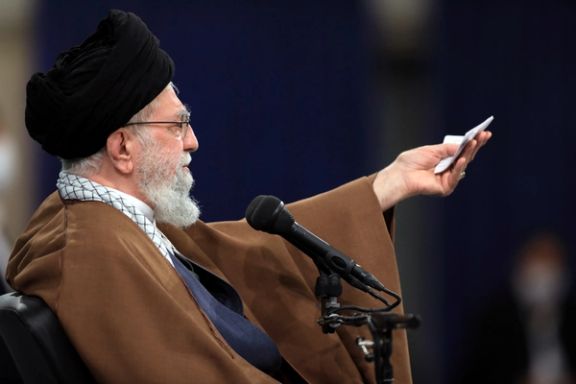
Supreme Leader Ali Khamenei has flatly dismissed the possibility of a referendum and suggested that people lack the faculties required for making decisions about important matters.
After the prayers, Abdolhamid’s congregation took to the streets of Zahedan for the 35th consecutive week and chanted slogans against the regime. Residents have been protesting every Friday since September 30, when security forces opened fire on civilians, killing nearly 90 protesters. The incident has come to be known as the Bloody Friday of Zahedan.
Sunnis constitute at least 10% of Iran's 88 million population and Zahedan, where thousands attend Abdolhamid’s Friday prayers every week is one of the few Sunni-majority cities in predominantly Shiite Iran.
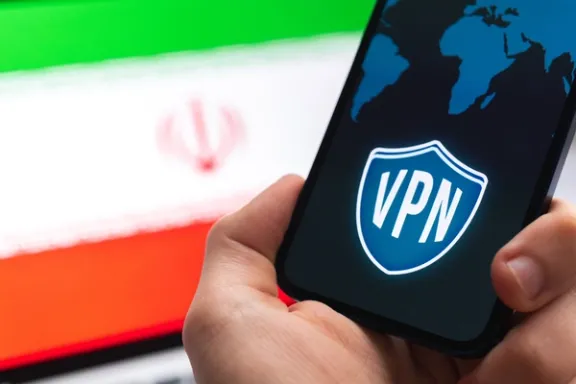
The US State Department says Washington has been providing VPNs to Iranians for access to the internet, especially since protests began in September 2022.
A State Department official briefed the media on Thursday saying that 30 million Iranians regularly use anti-censorship tools, including VPNs funded by the State Department.
Over the past years, the State Department has been funding a wide range of anti-censorship tools for the people who live in countries without free access to the internet, the US official explained.
Since the beginning of Iran’s September 2022 protests, the number of people using these tools inside Iran has risen exponentially and reached 30 million, roughly half of the adult population.
However, the official added that using these tools costs around 10 cents per user per month and currently the State Department is planning to increase the budget to continue providing this service.
Iran has been restricting and censoring the Internet since 2002, but using different techniques to deny access to users have surged during anti-regime protests.
The US Treasury Department expanded the range of internet services available to Iranians in the early days of the nationwide protests Iran following the death of 22-year-old Mahsa Amini in hijab police custody.
In October 2022, a bipartisan and bicameral group of US lawmakers urged Google, Amazon, Meta and other tech companies to facilitate access to online tools for Iranian protesters.
Internet restrictions and the use of anti-filtering tools have surged in Iran since protests began. Iranian hardliners push for restrictions to remain in place as long as street protests continue. Amid the heightened restrictions on Internet access, Iranians’ use of VPNs has risen over 3,000 percent in recent months.